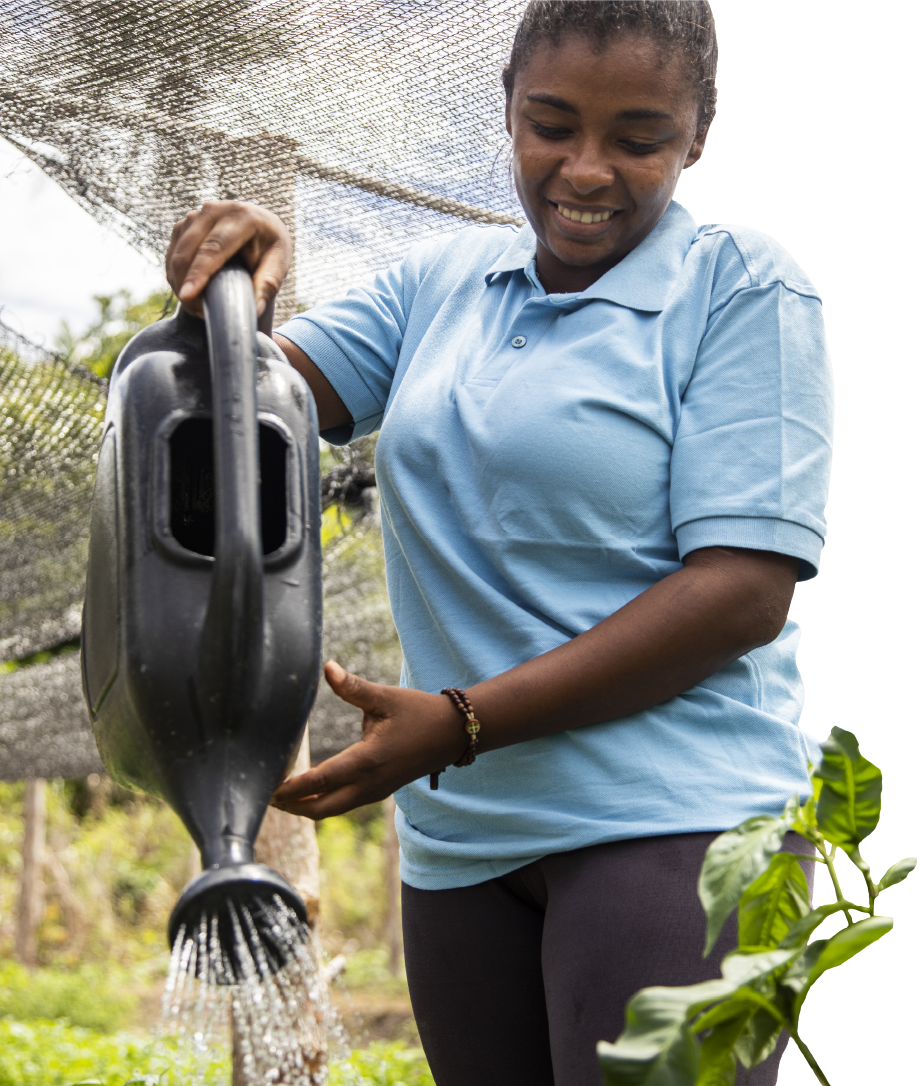
Relationship with
Frequent dialogue with society through institutions, organizations, and governments has always been a common practice at Suzano. In 2020, the company further expanded its communication with the public authorities, in all spheres, to support the fight against the coronavirus. The results of these actions prove that companies play a key role in mobilizing and transforming society.
Material topic in the section:

RELEVANCE IN SOLUTIONS
GRI 103-1, 103-2, 103-3
Suzano’s operation has perhaps never been more relevant than in 2020. During a complex time for the world, our pulp was the raw material for toilet paper, medical packaging, food packaging, gowns, surgical masks, and tissues, among other essential products for society. How can we continue ensuring that our products reach their destinations, benefiting 2 billion end users? Once again, the company opted for a constant, active, and transparent dialogue with all stakeholders. After all, lockdowns and interruptions in our chain were not an option since our business is essential to people’s lives. We were successful in several initiatives and, above all, we operated at a level that Suzano has always aspired to— mobilization, in which we join efforts with society to find solutions.
Brazilian Governments
In Brazil, as soon as COVID-19 was confirmed, the Supreme Federal Court (STF) delegated the decision on how to face the pandemic to states and municipalities. Suzano then took action and dialogued with the federal government and other government officials in its areas of influence, 16 states and 88 municipalities. One of the goals was to ensure the company’s readiness to contribute to the initiatives aimed at protecting the health of the population. It was also an opportunity to share prevention protocols, implement actions, and provide information about plans and events, giving full transparency about the company’s actions and the situation of its employees and contractors, all coordinated with the state and municipal governments, health departments, and health surveillance agencies, among others. Thus, we prepared to answer possible questions from government officials and supported the municipalities in putting together their own protocols.
Communication and action
In its direct relationship with Brazilian state governments, Suzano identified shortages in hospitals, personal protective equipment (PPE), and ventilators. One of the most troubling scenarios was in the far south of the state of Bahia and in northern Espírito Santo, given the number of available beds in the Intensive Care Unit (ICU) to cater to COVID-19 cases. This warning sign led Suzano to begin negotiations with the Bahia state government for the joint construction of a field hospital in Teixeira de Freitas, a municipality neighboring Mucuri, which would serve the entire far south of the state.
Opened in June 2020, the unit has 20 ICU beds in an area of 450 sqm adjacent to the Teixeira de Freitas Municipal Hospital. The project was made possible thanks to the partnership between Suzano, Veracel Celulose, and the government of Bahia. The private sector contributed a sum of money to build and assemble the structure, and the state government was responsible for maintaining the health unit. Its deactivation was scheduled for December 2020, but activities at the site were extended until March 2021 to meet the needs of the region.
Suzano also allocated approximately R$50 million to initiatives such as the purchase and donation of 159 ventilators and 1 million hospital masks, and it distributed 70% alcohol hand sanitizer, toilet paper, diapers, and napkins to public hospitals and governments at federal, state, and municipal levels. The equipment was donated by the company to the federal government and to the governments of the states of Bahia, Espírito Santo, Mato Grosso do Sul, Maranhão, Pará, Paraná, and São Paulo, and also distributed to some municipalities in the regions where the company operates. At the same time, Suzano supported the production of 6,500 ventilators in four months in a project carried out in partnership with Magnamed.
Suzano in the fight against COVID-19
SUPPORT IN THE CONSTRUCTION OF A FIELD HOSPITAL
IN THE CITY OF TEIXEIRA DE FREITAS (Bahia state)
A450-SQM TO SUPPORT THE MUNICIPAL HOSPITAL AND THAT SERVES THE ENTIRE SOUTHERNMOST PART OF THE STATE

20 ICU BEDS WERE PROVIDED IN THIS ACTION IN SUPPORT OF THE STATE GOVERNMENT OF BAHIA
SUPPORT FOR ACTIONS AT MUNICIPAL,
STATE, AND FEDERAL LEVELS
APPROXIMATELY R$ 50* million ALLOCATED for THE PURCHASE AND DONATION OF:
- 159 VENTILATORS
- 1 MILLION HOSPITAL MASKS
- AND DISTRIBUTION OF 70% ALCOHOL HAND SANITIZER, TOILET PAPER, DIAPERS, AND NAPKINS
6,500 VENTILATORS PRODUCED IN FOUR MONTHS BY MAGNAMED WITH SUPPORT FROM SUZANO
** The R$50 million figure refers to investments made to combat the pandemic in 2020.
Our actions remain strong in 2021. The updated total, as well as all the actions performed, are available at: https://www.suzanoagainstcoronavirus.com/
PARTICIPATION IN FORUMS AND ORGANIZATIONS
GRI 102-12
In 2020, Suzano joined the collective initiative Call to Action, organized by Business for Nature, a global community that brings together organizations and 30 companies from 11 countries that contribute to nature conservation. The purpose of the initiative is to mobilize companies worldwide to advance their practices promoting biological diversity, in addition to encouraging governments to create public policies that contribute to reversing the degradation of biodiversity during this decade, called the Decade on Ecosystem Restoration (2021-2030) according to the UN, and promote sustainable development.
To support this agenda, the World Economic Forum promotes 1t.org, of which Suzano is a member of the Advisory Council. The goal of the platform is to connect leaders in reforestation with leaders in science, technology, business, politics, and finance to reforest biomes in Asia, Africa, and the Americas.
In Brazil, one of the ways Suzano reinforces the importance of biodiversity in its business strategies is through the Brazilian Business Commitment to Biodiversity, launched by the Brazilian Business Council for Sustainable Development (CEBDS). As part of the Business for Nature movement, the commitment contains nine goals to be achieved by 2030 with a focus on the pillars of prevention, mitigation, compensation, and generation, in addition to information sharing.
China-United Arab Emirates-Brazil Connection
Who would have imagined the complexity involved in importing ventilators and hospital masks from China, a country where Suzano has operations? There are no direct flights from China to Brazil. This distance requires a layover in another country, in regions where confiscation of this type of merchandise occurs frequently. A safe route to Brazil and within the national territory needed to be established. This was all made possible through an agreement with the United Arab Emirates, in addition to coordination with the federal government and the seven states to which medical items were donated, which guaranteed the safe arrival of these products at their destinations.

For a sustainable agenda in Brazil
Suzano is one of the 40 signatories to the Comunicado do Setor Empresarial Brasileiro (Communication from the Brazilian Business Sector), a document that defends the sustainable development agenda and the fight against deforestation in the Amazon. In addition to companies from different sectors of the economy, the movement, headed by CEBDS, brings together entities from the various sectors of the economy. The letter was addressed to the Vice Presidency of the Republic and to the National Council of the Legal Amazon, chaired by Vice President Hamilton Mourão, and subsequently filed with the Federal Supreme Court (STF), the Senate, the House of Representatives, and the Attorney General’s Office (PGR).
The document highlights the possible impacts on business caused by Brazil’s negative image abroad on social and environmental issues. It also indicates immediate actions to be taken to allay the negative perceptions of foreign investors and consumers and defend the necessity of redirecting investments to address Brazil’s economic recovery in an inclusive, circular, and low carbon economic model.
Zero deforestation
Suzano categorically does not practice deforestation. In addition to preserving important fragments of native forest and restoring previously degraded areas, the company uses its vast knowledge in forest management and the most advanced technology to increase production capacity of eucalyptus clones, occupying exactly the same area that it has for the cultivation of its trees. In 2020, as a way of expanding its area of influence in this important topic, we developed a Wood Supply Policy and started to publish the company’s annual reports specifically on the subject.
Carbon, a strategic issue
GRI 103-1, 103-2, 103
Suzano believes that one of the main incentives for the recovery and conservation of native forests is the creation of a regulated, global, coordinated, and large-scale carbon market. Brazil can take a leading role in environmental debates for a low-carbon economy. We believe that, in order to achieve a new role in global geopolitics, the country needs, as a nation, to demonstrate its commitment to zero illegal deforestation. This is essential for advancement in the process of creating a global carbon market, an effective instrument for protection against deforestation and a source of resources that could be converted into benefits for the population and the Brazilian territory as a whole.
Suzano continues to dialogue with the production sector, civil society, the Ministry of Economy, and Itamaraty (Foreign Affairs) with the expectation of forming an internal commission and developing a legal framework for the Brazilian carbon market to move forward in 2021. The company also intensified communication with international authorities, looking to support the process until a balance is found in final discussions on the Paris Agreement. We are working on all these fronts and hope that the alignment between countries will materialize in November 2021 at the United Nations Conference on Climate Change (COP 26) in Glasgow, Scotland.
